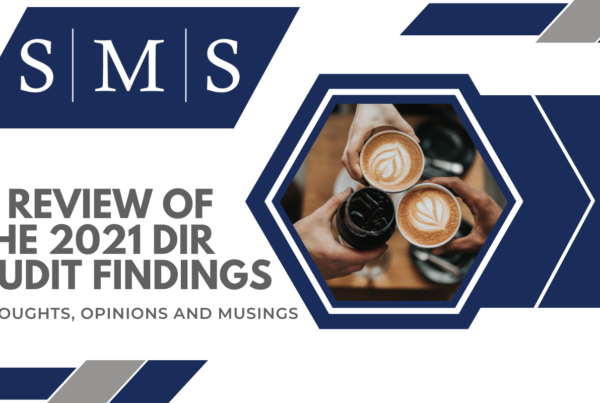
Once again, my desire to read got the better of me as I opened an article on WorkCompCentral from 1/27/22 regarding a revised fee schedule for copy services.
The great State of California Division of Workers’ Compensation is proposing an increase of the flat rate for copy services, as well as some other proposed language. Please bear in mind as you read my rant below that I am not implying copy services should not be reimbursed. Quite the contrary. I use copy services all the time and they are valuable in the discovery process.
What bothers me is the fact that the DWC would consider increasing fees for the benefit of copy services while at the same time not creating or even recommending a uniform set of procedures for each and every WCAB to adhere to when it comes to disputes.
Yes, we have the “lien” process, and yes, we have the non-IBR Petition process. But most of the disputes I run encounter should never even have to get to either of those two points. Let me explain, and let the rant begin!
A little reminder and stroll through history
I drafted an article in 2020 regarding SB 863 (here), and discussed the changes made in that bill as well as some of the tricks surrounding copy service providers and their response to the same. Call me shocked, but most items that I discussed two years ago are prevalent today. 8CCR §9982(d)(1) was drafted specifically to address a reasonable timeframe for the defendant to comply with a request for records. Yet I find myself time after time looking at subpoenas issued the day of, or a few days after the date on the top of a Notice of Representation or an Application. And so, I tell my client to let the subpoena and/or representation notice (whichever is earlier) to serve as the start date of the request for documentation and to serve the documents that are requested. Most of the time they do. And what happens? Pretty much without fail, the copy service proceeds with moving forward with the subpoenas immediately.
And so, I object timely and most of the time file a Petition to quash. And this is where the first problem arises. First, if we DON’T file to quash, the copy service company will inevitably argue that we needed to and by not, they have a valid basis for requesting payment. Which I disagree with. Why should we be forced to spend the time and cost of filing a Petition and potentially going to a hearing over a service that under the CCP should not have occurred? Our objection should be sufficient.
But I digress…. When said Petition is filed, I would give a rough estimate of about half of the WCJ’s in the State will review and address the Petition on the merits. I always try to include all the evidence needed to render a decision without a hearing, and then some. And so, with the half of Judges who will address the Petition immediately, I will either get an Order Quashing or sometimes an Order Denying if I happened to have missed something or was unclear. I admit it, I am not perfect, though close to it in this regard.
Of the remaining half of Judges, they fall into two camps:
1. The Judge will issue an Order Deferring action and set the matter for a hearing: I think this is nothing more than an attempt to avoid ruling on the issue and forcing the parties to address a file and serve that almost always has already happened. This hearing can have some benefit as most of the time we can work out our differences with applicant’s attorney, but the end result is time and money for my client to address an arguably improper subpoena request. And if applicant’s counsel cancels the subpoena request, I will inevitably get a bill for the cancellation at $75.00. And then there are the times when we cannot come to an agreement and the court simply defers the matter until after the case in chief resolves. As a side note this appearance can tend to clog an already clogged appearance calendar. Curiously, this tactic seems to fall in line with the “meet and confer” language I will discuss later on.
2. The Judge will deny the request for an Order Quashing and will indicate something to the effect of that the applicant can pursue discovery, but the defendant may not be liable for the costs: I think this is a colossal mistake and does nothing but lead to litigation and costs that do not need to exist on a claim. I cannot tell you how many times I have had a Judge tell me that if I am right, I will prevail in the end whether it be through the non-IBR process, or a lien. But why should the defendant spend the time and costs of having to prove we are right months or years later? All this does is breathe life into a dying subpoena and drag the issue out when it does not need to be.
My first response to the fee schedule proposal is to address the issue of improper subpoenas and then have a conversation on the cost of doing business for each valid subpoena. Proposed language in §9985 notes disputes may be resolved by the filing of a petition at the WCAB. So does this require the court to address at the time of filing, or will they continue to sometimes address and sometimes not as noted above? The article also discusses the specific language disallowing payment for services provided within 30 days of the written request.
Wonderful! This should not even be subject to debate! But why is the DWC not also indicating in the same spirit of this language a provision that in the event of a premature or improper request, the defendant merely has to demonstrate the same and the court must act on that immediately? Again, it would resolve a large chunk of the billing disputes that exist with copy services.
What I think could be clarified further is if a follow-up request for records must be made. Getting back to my rant, the regulation language we have now is not adhered to by copy services through premature subpoena filings. Or, subsequent filings under the premise “Hey there must be updated records since the applicant is treating somewhere in the State of California even if not specifically at this location, and that original request from two or three years ago is good enough to issue endless ‘update’ subpoenas in perpetuity”. Regardless of updated file and serves completed routinely by the defendant.
Meet and confer language
I was surprised to see that this proposed language is now being considered for removal. The proposed language states that if there is an objection to any Notice of Intent to copy, the rules would require the parties to meet and confer to resolve the resolution. I believe that any attempt to head off further litigation is a good thing. Would it work in practice? I will try to be optimistic and say “possibly”. As noted in this article and pointed out in my 2020 blog post, I don’t think many copy services and applicant attorneys really care if there is an agreement reached or not. Why do you ask? Because applicant attorneys have no liability for costs and they care little or not at all about liens or non-IBR Petitions. Liens and the non-IBR process are outside of their general scope and they are not footing the bill for either the initial request, or the litigation later on.
And even if there is meet and confer language included, how does this involve the copy service provider? Many already don’t care if we object and I have been told more than a few times that even if records are requested prematurely and even if we do comply, the applicant has a right to their independent discovery. The most common caselaw or practice protocols that are then thrown about include: “Discovery provisions are to be liberally construed in favor of disclosure.” Greyhound Corp. v Superior Court, 56 C2d 355, 15 CR 90. And “the concept of liberal discovery is codified in the Discovery Act of 1986.” Cal Civil Disc. Practice CEB §2.2. In response, I generally point out that the CCP also clearly states discovery shall not be duplicative and there was a timeframe for discovery requests outlined in SB 863 for a reason: to give the defendant a reasonable time to proceed with discovery and comply with requests for documents so as to not make the discovery process too burdensome.
I fear that without specific language at minimum indicating that in the event of an objection the subpoena process shall not continue until the issue is resolved or the parties meet and confer and are unable to resolve their dispute and a timey filed Petition is acted on, we will find copy services plowing through subpoena after subpoena with no care for rules, regulations, caselaw, etc.
A few final thoughts about other proposed language
I also found language regarding preventing payment for charges related to records held by the claims administrator or carrier, or cancellation of a subpoena for such records when the copy service is served with a signed order quashing the subpoena to be a good idea. Not to repeat myself too much, but are we going to create a uniform rule for all WCJ’s to address Petitions to Quash when submitted? Next, there is language regarding charges for records submitted for Maximus for IMR would not be paid if they are already in the possession of the applicant or duplicative from what was submitted by the defendant. Again, a good idea. Does this mean the defendant must proceed with a lien Trial or non-IBR Petition and file for a hearing to get to this conclusion? Do we get to request for costs for frivolous subpoena filings AND will the WCAB take those Petitions seriously?
And so, we head into another year of copy service litigation with the hopes that this proposed language will clear up most of the issues I encounter on a daily basis and provide the parties with a clear path for reasonable and agreeable discovery. Written comments are accepted by the DIR until 2/25/22. I will be writing them for sure. Will you?



